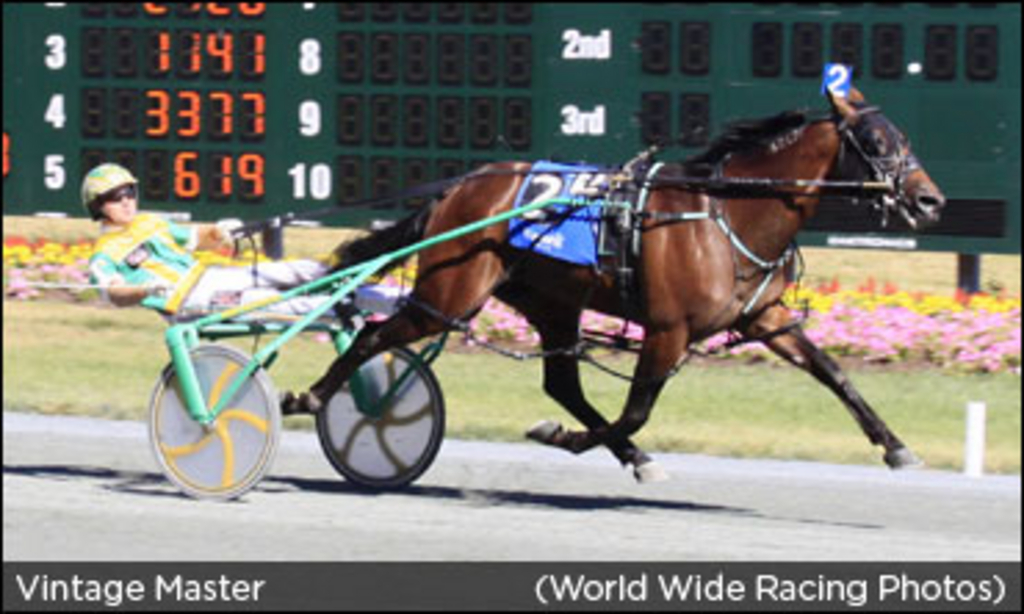
"He’s probably my all-time favorite horse. I’ve never been around a cooler horse in my life. You could have a two-year-old work on this horse."
Last year, as a three-year-old, the pacer Vintage Master was among the dominant colts in his division. This year, he’s stepped up against the best older horses in the sport and it’s a whole new scene.
This year, he’s been able to win two of his six starts, including an elimination race for the $500,000 Ben Franklin Pace, to be held Sunday at Harrah’s Chester, outside Philadelphia. The win came in a world record (for four-year-olds on a five-eighths-mile track) of 1:48.1, lowering his own mark of 1:48.4, also set at Chester on June 6.
The new mark was set when Vintage Master came from third at the three-quarters into fractions set by Foiled Again at the :26.1 first quarter and :52.4 at the half, set by Dial Or Nodial. The big mile was not a big surprise to trainer Jimmy Takter.
“I know he can go fast,” Takter said. “He can roll along pretty good, that colt. He got a very good trip; they were battling hard up front. He took care of himself in the stretch (last quarter was :28) and he was a very comfortable horse. That’s why he’s still around, I guess.
“You know, it’s always hard for four-year-olds to take on the next age group. They have to step it up a little bit. It’ll probably be a little easier for him as a five-year-old. By the same token, I don’t think he knows what’s going on, this horse. He’s cool like that. He’s the coolest horse I’ve ever been around. Some horses are nervous before races, he’s yawning all the time. He’s standing there asleep with his bridle on.”
Takter says he has to almost wake up Vintage Master when it’s time to train.
“You’ve got to let him know you’re behind him,” Takter said. “If you train him without letting him know you’re back there, you have a hard time going 2:30 with him.”
The draw was important, notes Takter, but not critical. Vintage Master got post No. 1.
“I’d like to see him a little bit in contention early,” Takter said. “I’d rather see him be slightly over aggressive than under aggressive. Strength-wise, I think it might be surprising to say, but I think he’s the strongest horse in the field. He’s extremely strong.
“His heart rate after (the elimination) was 75. That means the horse was maybe 75 percent used in the race. After a performance like that, you’d expect the average horse to be in the high 90s or even over 100. It took him 10 minutes to cool out. Ten minutes after the race you couldn’t see that he’d raced.
“He likes his paddock, he likes to lie down and get as dirty as possible. You barely recognize he’s a horse when you bring him in. The highest point of his day is eating; he’ll be so happy to get out in his paddock (to get in the puddles created by rain in New Jersey on Tuesday)."
This story courtesy of Harness Racing Communications, a division of the U.S. Trotting Association. For more information, visit ustrotting.com.

